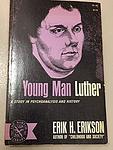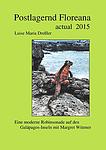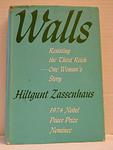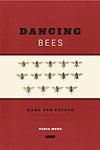The Greatest German "Nonfiction, Biography" Books Since 1950
Click to learn how this list is calculated.
This list represents a comprehensive and trusted collection of the greatest books. Developed through a specialized algorithm, it brings together 300 'best of' book lists to form a definitive guide to the world's most acclaimed books. For those interested in how these books are chosen, additional details can be found on the rankings page.
Genres
Biography is a genre of literature that focuses on the life story of a person, typically a historical figure or a celebrity. It provides a detailed account of the subject's life, including their upbringing, achievements, struggles, and personal relationships. Biographies can be written in various formats, including memoirs, autobiographies, and third-person narratives. This category of books offers readers an opportunity to gain insight into the lives of notable individuals and their impact on society.
Countries
Date Range
Reading Statistics
Click the button below to see how many of these books you've read!
Download
If you're interested in downloading this list as a CSV file for use in a spreadsheet application, you can easily do so by clicking the button below. Please note that to ensure a manageable file size and faster download, the CSV will include details for only the first 500 books.
Download-
1. Eichmann in Jerusalem: A Report on the Banality of Evil by Hannah Arendt
This book is a thought-provoking exploration of the trial of Adolf Eichmann, a major organizer of the Holocaust. The author argues that Eichmann was not a fanatical ideologue, but rather an ordinary individual who simply followed orders and bureaucratic procedures, highlighting the terrifying potential for evil in any system that values obedience over personal responsibility. The concept of the "banality of evil" is introduced, suggesting that horrific acts can be committed by ordinary people under certain conditions.
-
2. Young Man Luther by Erik H. Erikson
This book is a psychological analysis of a seminal figure in religious history, focusing on his early life and the internal struggles that led to his revolutionary actions. The author, a prominent psychologist, applies psychoanalytic theory to understand the subject's tumultuous journey from a conflicted young man to a leader who would challenge the very foundations of the Church. The work delves into the protagonist's experiences with authority, his quest for spiritual certainty, and the personal crises that fueled his theological breakthroughs, ultimately shaping the course of Western civilization.
-
3. Postlagernd Floreana by Margret Wittmer
The book is a captivating memoir that recounts the extraordinary experiences of a woman and her family who, in the 1930s, left their conventional life behind to start anew on the remote Galápagos island of Floreana. The narrative delves into the challenges they faced, from harsh living conditions to mysterious events, including the arrival of eccentric settlers and the unexplained disappearances that later sparked rumors and intrigue. The author's personal account provides a unique glimpse into the pioneering spirit of the era and the allure of untamed nature, while also painting a vivid portrait of human resilience and the complexities of seeking paradise off the beaten path.
-
4. Walls: Resisting The Third Reich by Hiltgunt Zassenhaus
"Walls: Resisting The Third Reich" is a powerful memoir of courage and defiance, recounting the experiences of a young German woman during World War II who risked her life to oppose the Nazi regime. Working as an interpreter in the German courts, she secretly aided Scandinavian prisoners of war, passing along messages and providing them with hope and support. Her clandestine activities, carried out under the constant threat of discovery and execution, showcase the profound bravery and moral conviction required to resist oppression from within the very heart of a totalitarian state. The narrative not only captures the personal struggle against tyranny but also serves as a testament to the human spirit's capacity for resistance and solidarity in the face of overwhelming adversity.
-
5. The Dancing Bees by Karl von Frisch
"The Dancing Bees" is a fascinating exploration of the behavior and communication of bees, particularly focusing on the groundbreaking discovery of the bee dance language. The book delves into how bees use dance movements to communicate vital information about the location of food sources to their hive mates. Through meticulous observation and innovative experiments, the author unveils the complexity of bee communication and the remarkable precision with which bees can convey specific information about distance and direction. This work not only highlights the intricate social structure of bee colonies but also reflects on broader themes of animal intelligence and communication.
-
6. The Invention Of Nature: Alexander Von Humboldt’s New World by Andrea Wulf
"The Invention of Nature" is a biographical account of Alexander von Humboldt, a 19th-century explorer, scientist, and naturalist who revolutionized the way we understand the natural world. Andrea Wulf chronicles Humboldt's travels across South America, his encounters with indigenous peoples, and his groundbreaking scientific discoveries that challenged prevailing notions of the natural world. Humboldt's ideas about interconnectedness and the unity of nature were ahead of their time and continue to influence environmentalism and conservation today. Wulf's book is a masterful exploration of one of history's most fascinating and influential figures.
-
7. Thomas Mann Heinrich Mann by Helmut Koopmann
The book provides a comprehensive study of the lives and works of two prominent German literary figures, who were also brothers. It delves into their complex relationship, contrasting ideologies, and individual contributions to literature and culture. The author examines their personal and professional journeys, exploring how their differing views on art, politics, and society reflected the broader intellectual and historical currents of their time. Through a detailed analysis of their novels, essays, and other writings, the book offers insights into the brothers' influence on each other and on the literary world, highlighting their lasting legacy in the context of German and world literature.
Reading Statistics
Click the button below to see how many of these books you've read!
Download
If you're interested in downloading this list as a CSV file for use in a spreadsheet application, you can easily do so by clicking the button below. Please note that to ensure a manageable file size and faster download, the CSV will include details for only the first 500 books.
Download





